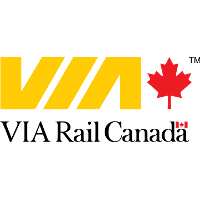A question investment managers and individual investors often (or should) ask themselves: “If I didn’t already own this stock, would I buy it today?” By any criteria, Via Rail, a Crown corporation owned by the federal government, is not a good investment – even under unrealistically favourable assumptions. The federal government should rigorously examine this charitably-designated ‘enterprise’ , then aim it towards for one of two fates: sale or liquidation.
Via Rail’s chronically cash-burning condition offers no economic value to any potential buyer, though there are always contrarians having the confidence, and perhaps the capability, to turn a seemingly hopeless asset into something valuable. (For example, there are a number of ailing airlines that have been bought and sold.). Via Rail, as structured and priced now, has little allure to a free enterprise acquirer.
Operating and capital annual funding support from the federal government for Via has been massive: $548 million in 2019 (before the impact of Covid-19) and $597 million in 2021, as examples. Sadly, the massive financial support from Ottawa is to be expected to continue.
Management consulting and investment banking firms should be hired by the Ottawa to review and value Via Rail. By employing a variety of scenarios, including modelling fundamental changes in Via’s orientation, routes, and staff levels, an engaged outside consultant should seek out opportunities for Via to move towards future positive cash flow. Any truly independent review by experts would likely conclude that Via Rail requires both additional investment and radical modernization; that is, if Via Rail is to not to merely survive, but thrive.
A few examples as to Via’s pricing for its transportation services follow. The subsidy per passenger for Via’s ‘Corridor’ (Quebec-Windsor) route was $180 in 2021. Before that, in 2019, and before COVID-19, the subsidy per rider for that route was only $80. Another example, the subsidy needed for each rider taking Via’s spectacular Jasper-Prince Rupert route in 2019, again before Covid-19, was $483. However, in 2021, during COVID-19, the subsidy hit $1,474 for that route; even higher ridership alone would not eliminate the subsidy.
In the absence of a combination of imaginative, radical, and, perhaps, ruthless restructuring and reorientation, it is unlikely that, using conventional investor valuation metrics (such as Enterprise Value to Revenue; Enterprise Value to Earnings Before Interest, Taxes, Depreciation and Amortization; Price to Earnings; Price to Operating Cash Flow; Price to Free Cash Flow; and or even Price to Net Asset Value), would generate a visible potential value, to even the most optimistic of possible buyers.
Yet, stranger things have happened, with seemingly unappealing assets being snapped up by a strategic industry-savvy acquirer. Taxpayers will never know unless Ottawa puts the firm up for sale (either largely in its current state, imperfections and all, or after a credible restructuring plan is produced).
The federal government should embark on setting Via Rail, a truly underperforming asset, on either a sale or liquidation track. The present “value” of Via Rail is negative; using the the cost of federal debt, it is about negative $16 billion.
Surely, there must be better uses of taxpayers’ taxes than keeping a Via Rail, a chronically mal-performing investment.
Ian Madsen is a Senior Policy Analyst at the Frontier Centre for Public Policy and author of the forthcoming ‘’Sell Them or Shut Them Down: 111 Reasons Governments Should Divest State-Owned Enterprises’



